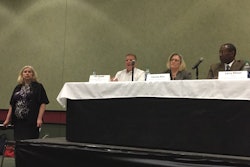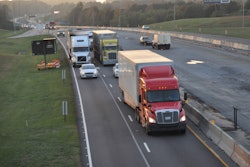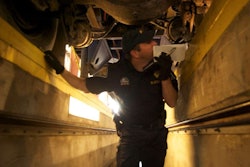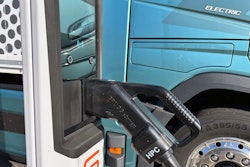The FAST Act highway bill signed into law Dec. 4, along with a raft of provisions that in some ways pulled back the reins on the Compliance, Safety, Accountability program’s Safety Measurement System, also included a section intended to be a potential addition to the program. Section 5223 of the H.R. 22 bill, headed “Beyond compliance,” detailed several additional requirements of the Federal Motor Carrier Safety Administration over the next 18 months, the same length of time the bill gave FMCSA to address several issues with the CSA SMS and report back to Congress.
The highway bill’s “Beyond compliance” directives require FMCSA to develop and implement in that time an incentive system for carriers that gives credit either in the CSA SMS or via some other methodology in the CSA program to carriers who do one of several things in their safety investments and operations. According to the bill’s text, credits are to be required for motor carriers who do one or a combination of the following:
The “Beyond Compliance” program’s inclusion in the highway bill ensures its regulatory pursuit. And the final bulleted item above leaves wide open credit possibilities.
But this isn’t the first to be heard of it. FMCSA launched a request for comments on such an initiative in April last year, as previously reported, following a March “Beyond compliance” discussion by the agency’s Motor Carrier Safety Advisory Committee. The committee discussed possibilities for credit-worthy activities in its September-issued letter to FMCSA. Among them were carrier use of technologies such as various collision mitigation systems, speed limiters and electronic logs; management practices, including driver training of various kinds, that promote safety; and compensation models/levels that promote safety, such as incentive programs.
MCSAC also recommended that a third party, rather than FMCSA, administer the program. Language in the highway bill explicitly enables such an option, but leaves the decision up to the agency.
Organizations that filed comments in response to FMCSA’s early-year request warned against structuring the program such that it becomes nothing more than a way of rewarding one group of carriers for doing some they already do. Of particular issue was investment in leading-edge technologies, more common among the larger fleets. Noted the Commercial Motor Vehicle Safety Alliance in its comments, “Although similar concepts have proven more successful with larger motor carriers in other jurisdictions around the globe, it is critical that the Beyond Compliance program be inclusive of all sectors of the motor carrier industry, including smaller motor carriers.”
The Owner-Operator Independent Drivers Association urged against locking in on specific technologies within any such incentive program and characterized FMCSA’s flawed CSA SMS as evidence of FMCSA having perhaps “already set up the system it is proposing.” The SMS “was intended to reflect a motor carrier’s safety efforts,” OOIDA said. “Carriers are free to adopt the technologies being discussed. Many large motor carriers have been using some of this technology for years, and whatever improvements in safety performance to be gained are already being reflected in the SMS system. Therefore, to a large extent, carriers are now asking to be granted indulgences from further enforcement because they bought certain technology that did not afford them such relief in the SMS system.”









